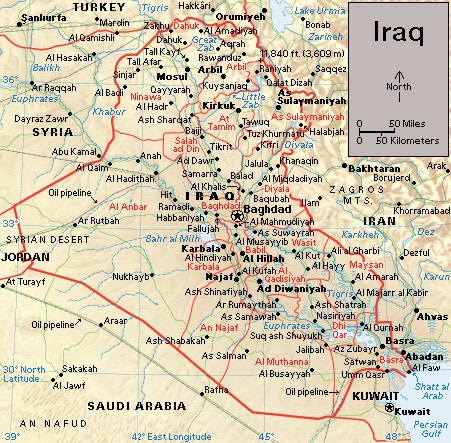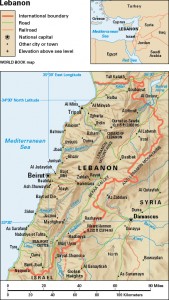Beirut and Baghdad—The “Other Attacks”
November 17, 2015
On Friday, November 13, everyone in the world learned quickly of the Islamic State terrorist attacks in Paris, France, that killed 129 people. There was scant coverage, however, of the Islamic State bombings earlier that day that killed 26 people in Baghdad, Iraq; or the Islamic State bombings the day before that killed 43 people in Beirut, Lebanon. Obviously, these horrible events were overshadowed by the severity and shock of the Paris attacks. But these “other attacks” were just as important, and highlighted the animosity that has existed between the Sunni and Shī`ah divisions of Islam for many centuries. Most of the victims of the Baghdad attack were Shī`ites gathered for the funeral of a comrade killed fighting against the Islamic State, a radical Sunni Muslim group. In Beirut, the bomb victims were mainly members of Hezbollah, a Shī`ite group fighting the Islamic State in neighboring Syria. In all three attacks—Baghdad, Beirut, and Paris—the Islamic State was retaliating against its enemies and people who oppose its strict and vicious rule. But only the attack in Paris sparked global outrage and condemnation as well as support for the people of France.

Islamic State bombings in Baghdad, the Iraqi capital, killed 26 people on Nov. 13, 2015.
Baghdad has seen violence rather steadily since the Iraq War, and it is almost understandable—if rather callous—that people react little to “yet another” terrorist bombing in the Iraqi capital. But it is the Iraqi people who have fought the Islamic State the hardest and longest. And more Iraqis have died at the hands of Islamic State terrorists—not to mention their paternal group, al-Qa`ida—than anyone else.

Islamic State bombings killed 43 people in Beirut, the Lebanese capital, on Nov. 12, 2015. Beirut lies only about 30 miles (48 kilometers) from the Syrian border.
Credit: WORLD BOOK map
Lebanon has seen comparatively little violence, despite its proximity to war-plagued Syria and Iraq—and the Lebanese have taken in over 1 million refugees. Minor terrorist attacks have hit Beirut as recently as 2014, but the 43 people killed on November 12 were the most in that city since Lebanon’s civil war ended in 1990. Beirut is not a war zone, just as Paris is not, and deaths in Lebanon matter just as much as deaths in Paris, or Baghdad, or anywhere else.
Other Behind the Headlines article


